Latest News
06 July 2018
Delft simulation model for optimum performance during team time trials
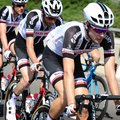
During his Mechanical Engineering degree programme, TU Delft student Mats Overtoom came up with a mathematical model that could provide answers to such questions as ‘What is the optimum changeover schedule for a cyclist in a team time trial?’ and ‘How fast does he need to cycle up a mountain to reach optimum performance?’. The input for the simulation model was data from cyclists from Team Sunweb and specific track information. It gives the Dumoulin team strategic tips for optimum performance, the best order of the cyclists and the length of turns on the front during a team time trial.
04 July 2018
Extreme sea levels predicted to increase along global coastlines
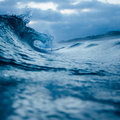
Future global warming will lead to an increase in ‘extreme sea levels’, with consequent flood risks to coastal infrastructure and human populations. An international research team from Italy, Greece, the Netherlands (TU Delft / Deltares) and the UK published this new research in Nature Communications.
03 July 2018
Metrology institute NMi relocates to TU Delft Campus
This summer, metrology institute NMi will relocate to the TU Delft Campus. The company – which specialises in testing, certifying and training in the field of metrology...
02 July 2018
Cees Dekker surprised with Best Professor Award 2018
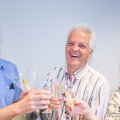
On Monday 2 July, Cees Dekker, Professor of Molecular Biophysics at the Faculty of Applied Sciences (AS), was surprised...
27 June 2018
QuTech’s Menno Veldhorst named to MIT Technology Review’s 2018 Innovators Under 35 List
Menno Veldhorst has been named to MIT Technology Review’s prestigious annual list of Innovators Under 35. Menno Veldhorst has invented a faster path to real-world quantum circuits by making it possible for them to be printed on silicon—the way computer chips have been printed for decades. Prior to Veldhorst’s innovation, it was considered impossible to make usable, semiconductor-based quantum circuits on silicon that would be stable enough to perform useful calculations.
25 June 2018
Bacteria as living factories for the production of powerful antibiotics
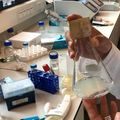
By definition, antibiotics kill bacteria. Nevertheless, TU Delft researchers have succeeded in engineering bacteria to produce promising amounts of a simple carbapenem antibiotic. Carbapenem antibiotics are effective against many bacteria and are usually only used when other antibiotics fail. They are currently only produced synthetically – an expensive process that also leads to chemical waste. This research suggests that by using bacteria as ‘living factories’, carbapenems might also be produced biologically.
21 June 2018
Bedrock below West Antarctica rising surprisingly fast

Researchers have found that the bedrock below the West Antarctic Ice Sheet is rising much more rapidly than expected, revealing a very different Earth structure than previously believed. This discovery has important implications in understanding climate changes in Antarctica. The team of researchers, from ten universities including TU Delft, report on their findings in Science on June 22th.
14 June 2018
Antarctica ramps up sea level rise
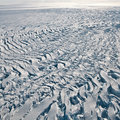
Ice losses from Antarctica have increased global sea levels by 7.6 mm since 1992, with two fifths of this rise (3 mm) coming in the last five years alone.The findings are from a major climate assessment known as the Ice Sheet Mass Balance Inter-comparison Exercise (IMBIE), to which TU Delft also contributed, and are published today in Nature.
13 June 2018
Delft scientists make first ‘on demand’ entanglement link
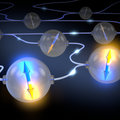
Researchers at QuTech in Delft have succeeded in generating quantum entanglement between two quantum chips faster than the entanglement is lost. Entanglement - once referred to by Einstein as "spooky action" - forms the link that will provide a future quantum internet its power and fundamental security.
12 June 2018
In-depth analysis of safety for swimmers around the Sand Engine
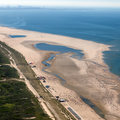
Pumping huge volumes of sand onto the coastline has effects on currents, waves and swim safety. Max Radermacher has compiled the first analysis of this problem to allow targeted measures (such as extra coastguards) to be taken where necessary. Radermacher will be awarded a PhD at TU Delft for his work on this subject on Friday 15 June.
